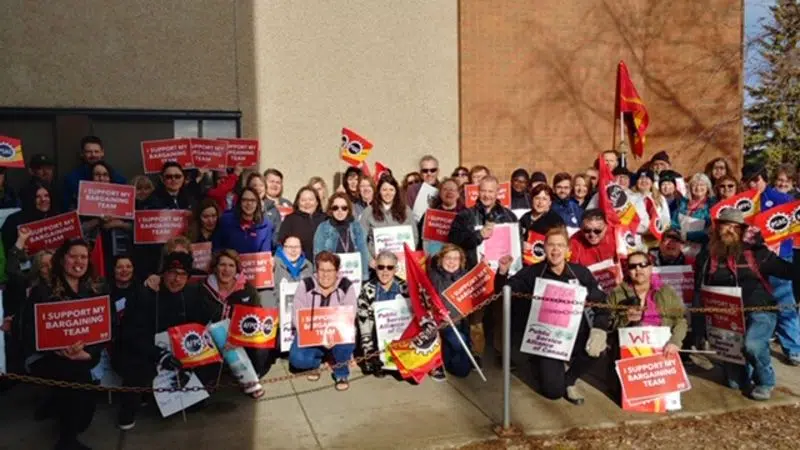
Union demands new pay system
One of the largest civil service unions in the country says the upcoming federal budget must include money to launch the replacement of the disastrous Phoenix pay system.
The Professional Institute of the Public Service of Canada (PIPSC) warns that, unless cash is earmarked this spring for a new system to pay federal employees, the tens of thousands of workers affected by the current system’s problems could be left in limbo for another year.
Members of the Public Service Alliance of Canada (PSAC) in Prince Albert held a rally Thursday, April 25. They are among the approximately 140,000 federal public sector workers who are upset by the federal government’s lack of movement in contract negotiations.


